Define Blood Group
Blood Groups, also known as blood types, are classifications of blood-based on the presence or absence of certain molecules called antigens on the surface of blood cells. The most well-known blood group system is the ABO system, which categorizes blood into four main types: A, B, AB, and O. Type A blood has A antigens, type B has B antigens, type AB has both A and B antigens, and type O has neither A nor B antigens. In addition to the ABO system, there is the Rh system, which determines the presence or absence of the Rh factor (also known as Rh antigen) in red blood cells.
If your blood has the Rh factor, you are Rh-positive; if not, you are Rh-negative. Understanding Blood Groups is important for blood transfusions and organ transplants to ensure compatibility and avoid adverse reactions.
History of Blood Grouping System
The history of the blood grouping system traces back to the early 1900s when scientists discovered that human blood can be categorized into different types on specific markers called antigens on the surface of red blood cells. The ABO Blood group system, discovered by Karl Landsteiner in 1901, was the first major breakthrough, classifying blood into types A, B, AB, and O. Later, in 1940, the Rh factor was identified, leading to the ABO RhD typing system commonly used today. These discoveries were crucial for safe blood transfusions, as mismatched blood types can lead to severe reactions. Over time, advancements in blood typing technologies have improved accuracy and expanded our understanding of blood compatibility, saving countless lives in medical procedures worldwide.
Different Types of Blood Group
Blood grouping refers to the classification of blood-based on the presence of specific antigens on the surface of the red blood cells. The two most important blood group systems are the ABO system and the Rh system. Other less common blood group systems include the Kell system, Duffy system, Kidd system, Lewis system, and MN system, among others. These systems involve different antigens and antibodies that are less clinically significant than the ABO and Rh systems but can still be relevant in certain medical situations.
| Different Types of Blood Group | |
| Types | Description |
| ABO Grouping System | This is the most well-known blood group system and classified blood into four main groups: A, B, AB, and O. These groups are based on the presence or absence of antigens A and B on the surface of red blood cells. Additionally, individuals have antibodies in their plasma that react against the antigens they do not possess. |
| Rh Grouping System | The Rh system classifies blood based on the presence or absence of the Rh antigen (also called the Rh factor or D antigen). If the Rh antigen is present, the blood type is Rh-positive (e.g., A+, B+, AB+, O+). If it is absent, the blood type is Rh-negative (e.g., A-, B-, AB-, 0-) |
ABO Grouping
The ABO grouping system is a way of categorizing human blood based on the presence or absence of certain molecules called antigens on red blood cells. There are four main blood types in ABO Grouping System: A, B, AB, and O.
- Type A blood has A antigens.
- Type B blood has a B antigen.
- Type AB blood has both A and B antigens.
- Type O blood has neither A nor B antigens.
Additionally, blood also contains antibodies that fight against foreign antigens. For example, someone with type A blood will have anti-B antibodies, and vice versa. Type AB blood has no anti-A or anti-B antibodies, while type O blood has both anti-A and anti-B antibodies. Knowing a person’s blood type is crucial for safe blood transfusions and organ transplants.
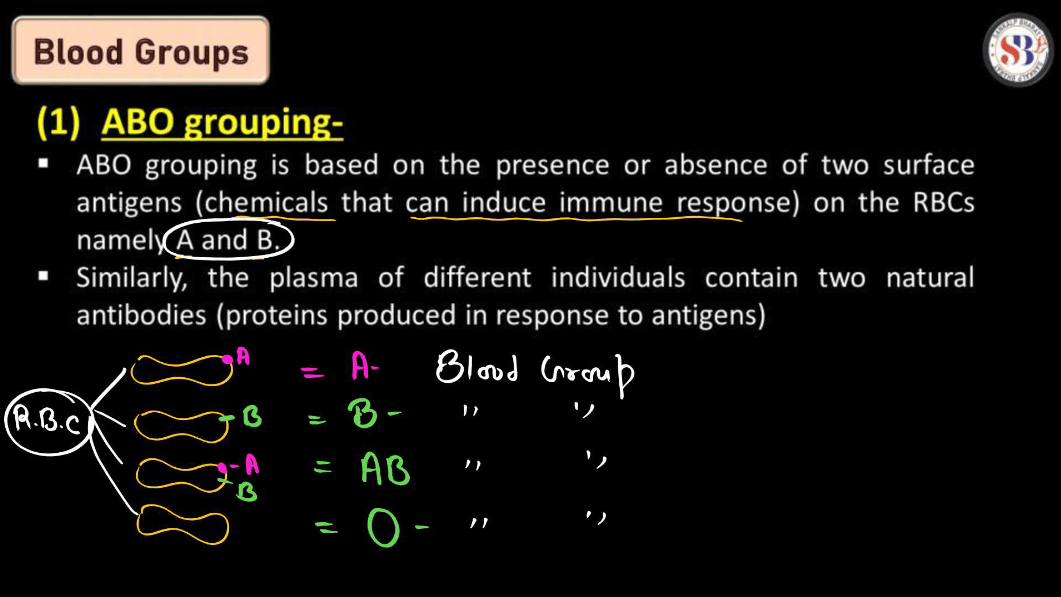
Rh Grouping System
The Rh grouping system is another way of categorizing blood-based on the presence or absence of the Rh antigen, also known as the Rh factor, on red blood cells. If you have the Rh antigen, you are Rh-positive (Rh+), and if you don’t, you are Rh-negative (Rh-). During pregnancy, if an Rh-negative mother carries an Rh-positive baby, her immune system may produce antibodies against the Rh factor, potentially causing harm to future Rh-positive pregnancies.
To prevent this, Rh-negative mothers may receive Rh immunoglobulin injections to stop antibody production. Understanding the Rh factor is important in blood transfusions and pregnancy to ensure compatibility and prevent complications related to Rh incompatibility.
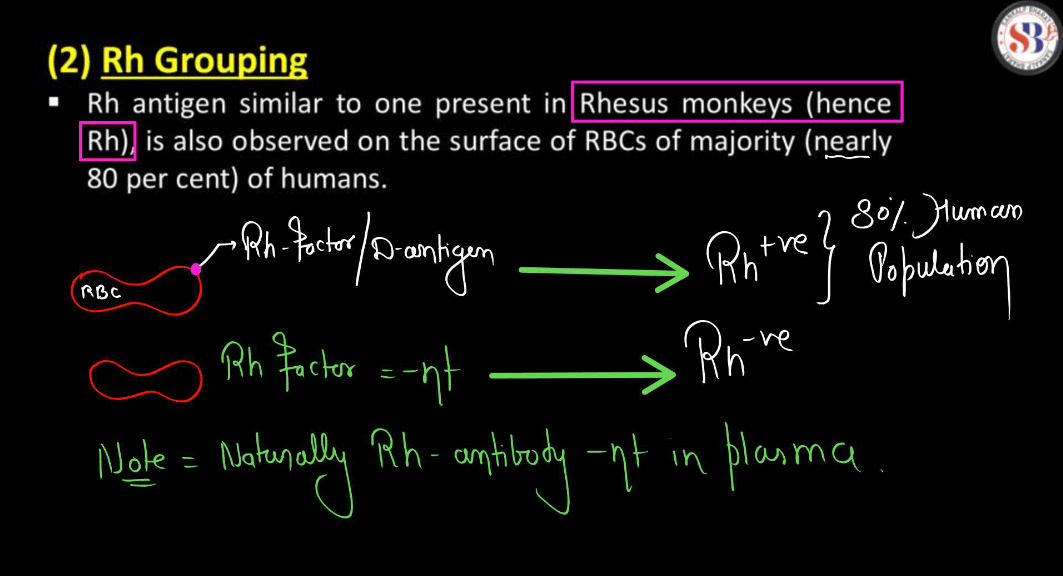
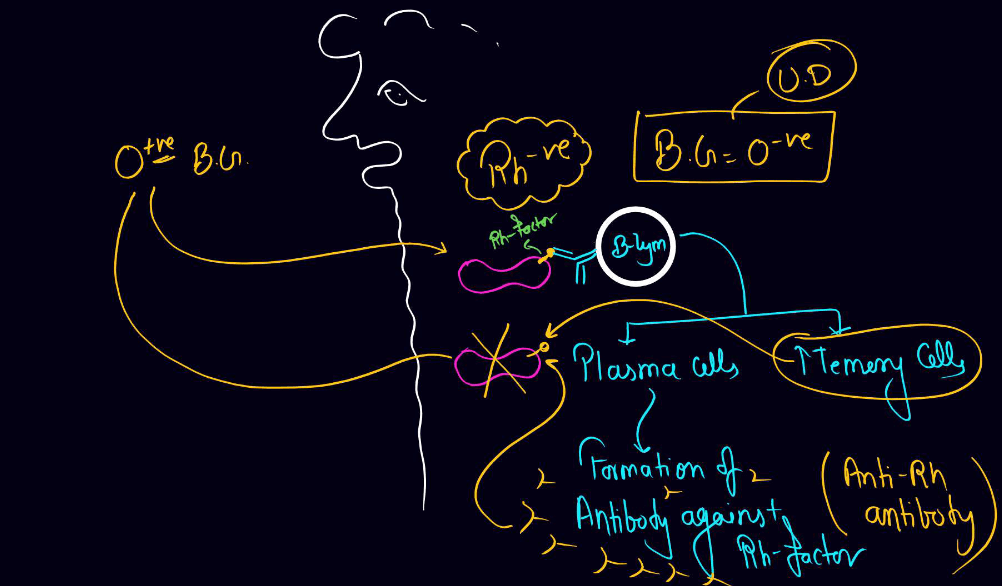
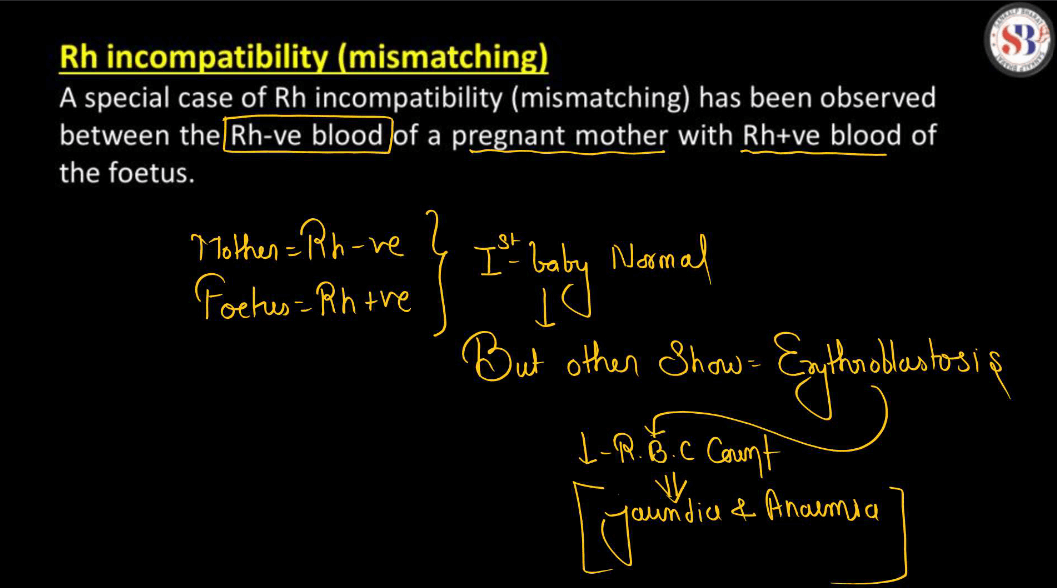
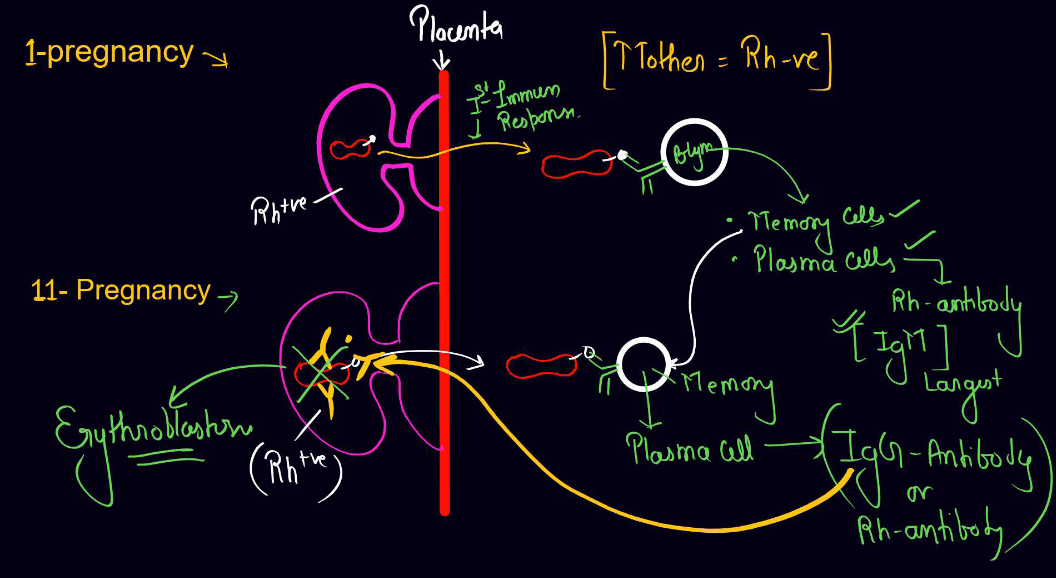
Doner’s Compatibility
Blood donor compatibility is crucial for a successful blood transfusion. When someone needs blood, it is important to match the donor’s blood type with the recipient’s blood type. There are four main blood types: A, B, AB, and O. Each of these types can be either Rh-positive or Rh-negative. For example, a person with blood type A can receive blood from someone with type A or type O, but not from type B or AB. Rh factor also matters: Rh-positive blood can be given to Rh-positive or Rh-negative blood is only suitable for Rh-negative recipients. Compatibility ensures that the recipient’s immune system won’t attack the donated blood, increasing the chances of a successful transfusion and helping save lives.
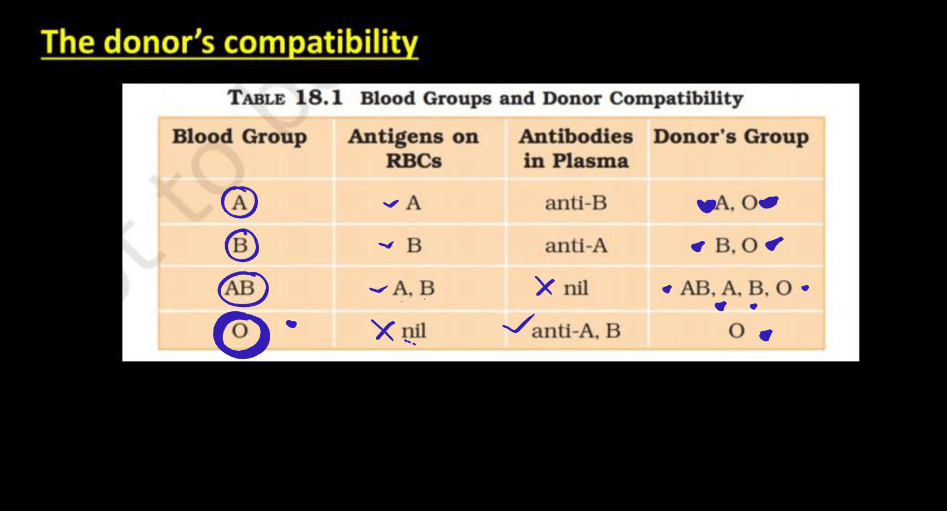
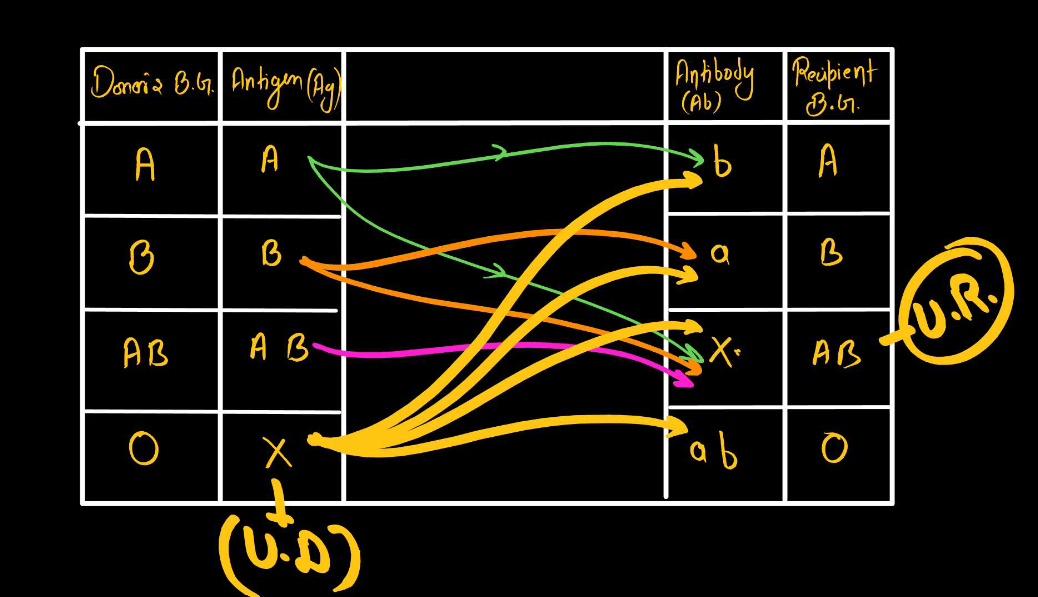

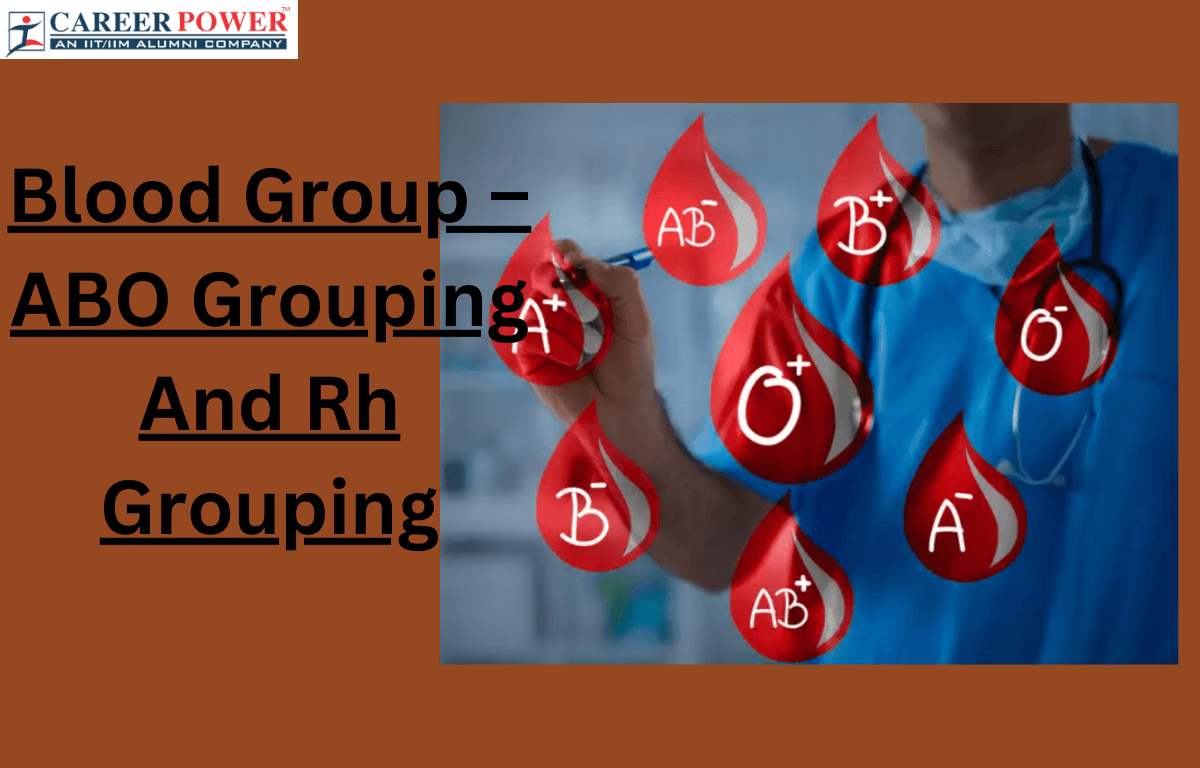

 50 Vegetables Name for Kids in English a...
50 Vegetables Name for Kids in English a...
 Food Chain: Definition, Types, Examples,...
Food Chain: Definition, Types, Examples,...
 Human Respiratory System: Definition, Di...
Human Respiratory System: Definition, Di...













